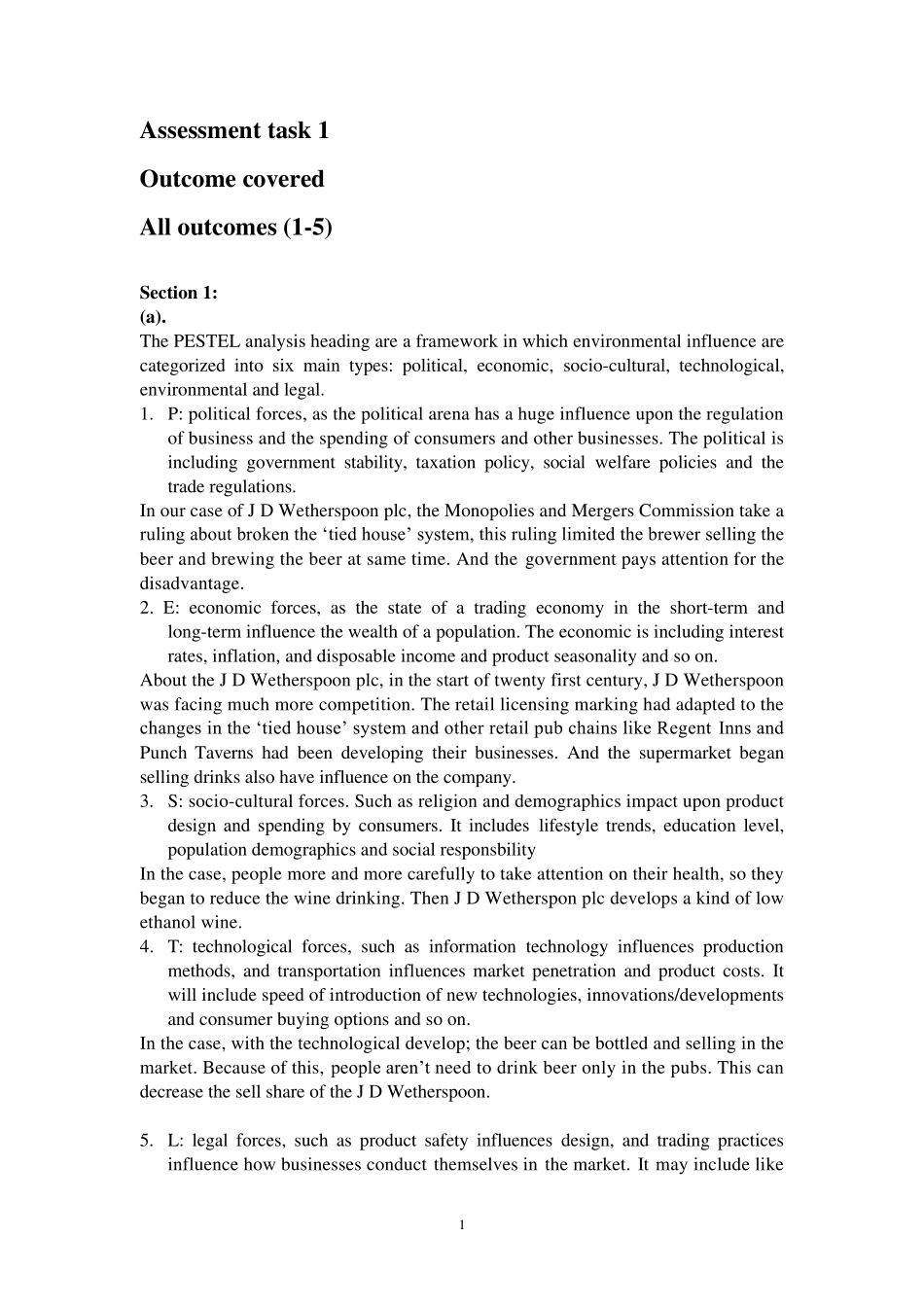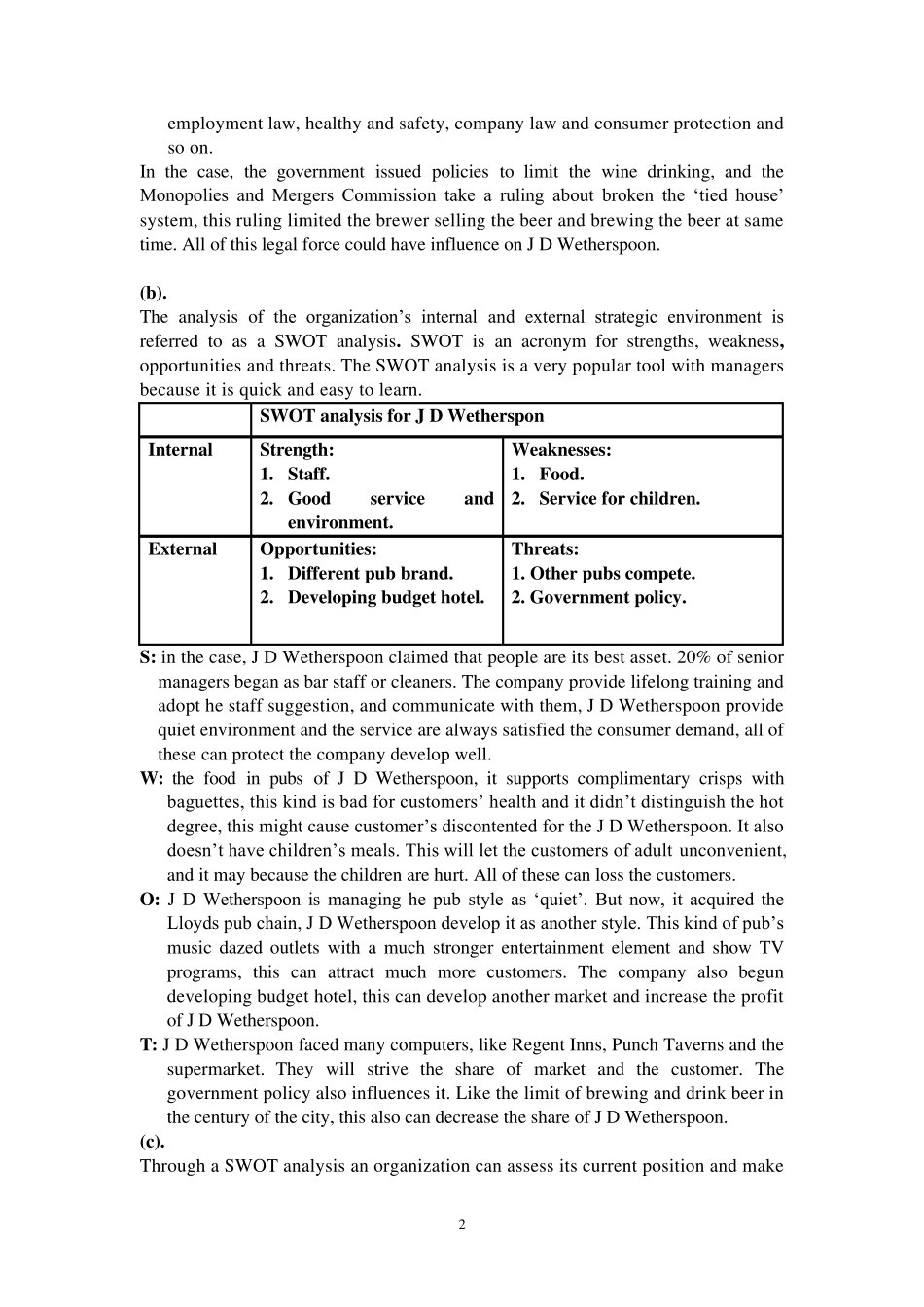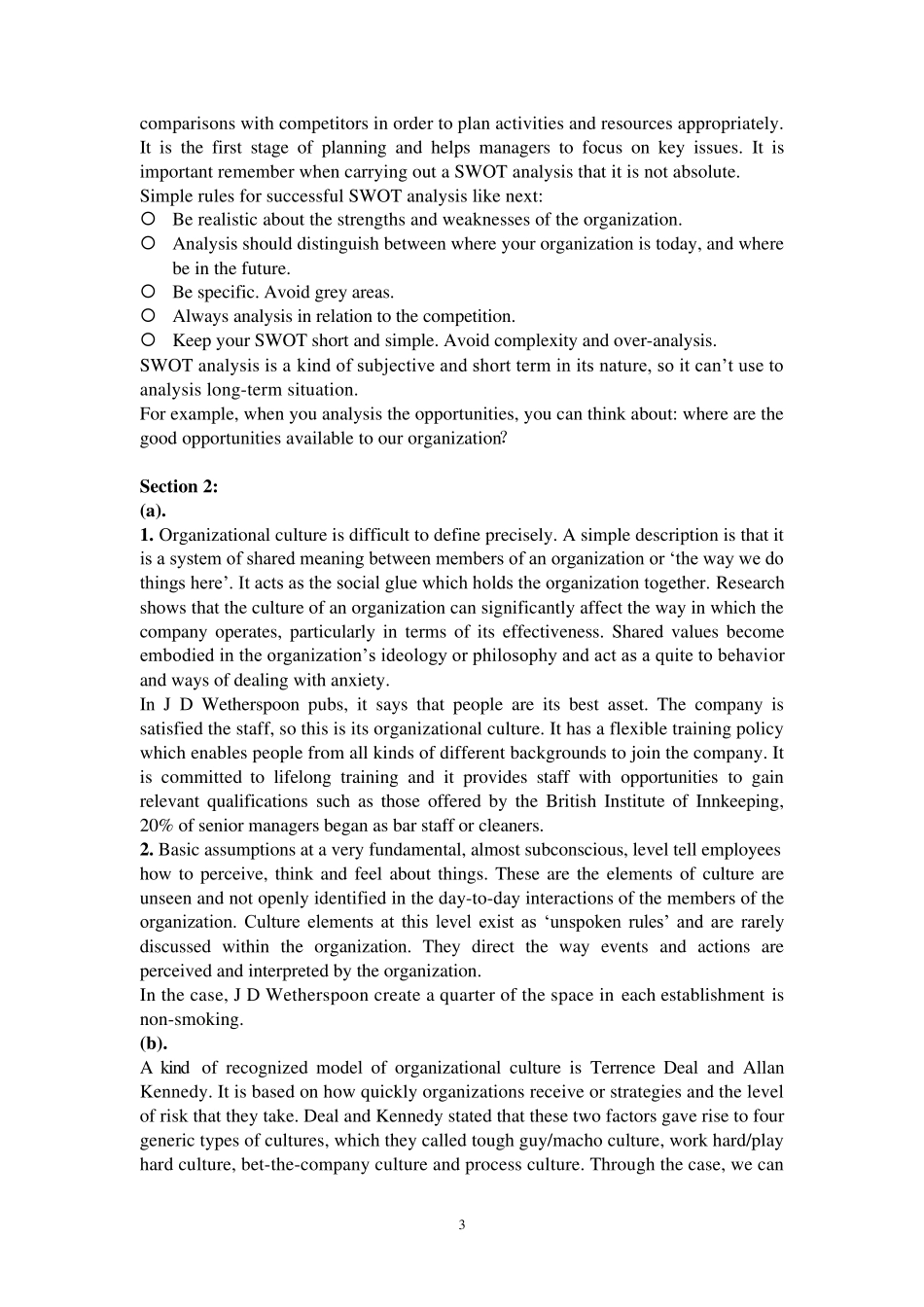1 Assessment task 1 Outcome covered All outcomes (1-5) Section 1: (a). The PESTEL analysis heading are a framework in which environmental influence are categorized into six main types: political, economic, socio-cultural, technological, environmental and legal. 1. P: political forces, as the political arena has a huge influence upon the regulation of business and the spending of consumers and other businesses. The political is including government stability, taxation policy, social welfare policies and the trade regulations. In our case of J D Wetherspoon plc, the Monopolies and Mergers Commission take a ruling about broken the ‘tied house’ system, this ruling limited the brewer selling the beer and brewing the beer at same time. And the government pays attention for the disadvantage. 2. E: economic forces, as the state of a trading economy in the short-term and long-term influence the wealth of a population. The economic is including interest rates, inflation, and disposable income and product seasonality and so on. About the J D Wetherspoon plc, in the start of twenty first century, J D Wetherspoon was facing much more competition. The retail licensing marking had adapted to the changes in the ‘tied house’ system and other retail pub chains like Regent Inns and Punch Taverns had been developing their businesses. And the supermarket began selling drinks also have influence on the company. 3. S: socio-cultural forces. Such as religion and demographics impact upon product design and spending by consumers. It includes lifestyle trends, education level, population demographics and social responsbility In the case, people more and more carefully to take attention on their health, so they began to red...


